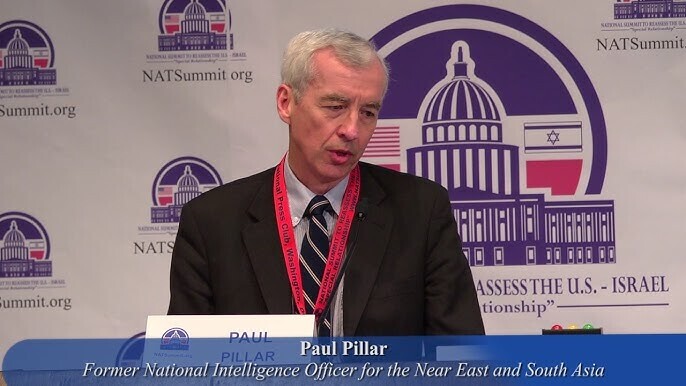
TEHRAN-TABNAK, Dec 25: Professor Paul Pillar, who was CIA intelligence analyst for 28 years, says Putin would prefer to play off the United States and Iran against each other, rather than just reaching a grand bargain with one at the expense of relations with the other.
“I think the convergence into a bloc of Iran, Russia, and China--and many include North Korea--is habitually overstated,” Pillar told TABNAK News Agency.
Following is the full text of the interview.
Q: Iran and Russia signed a long-term cooperation agreement. What message do you think this agreement sends to the Trump administration?
A: The message it ought to send is that this agreement is another demonstration of how when the United States sanctions or punishes adversaries, a natural reaction is for those adversaries to team up to balance against the United States, even if the adversaries in question are not otherwise natural allies. In other words, the agreement can be read as being in large part a response to US and Western policies. The more likely reading, however, not just by the Trump administration but also many others in Washington, is that the agreement is a sign of malign intentions that Russia and Iran have shared all along.
Q: The agreement does not include a “Collective Defense” article. This means that this agreement is not similar to the agreements Russia has with North Korea and Belarus. Some believe that the absence of such an article does not block the way for Iran to improve relations with the West and the United States. What is your assessment?
A: This aspect of the agreement is partly in deference to Iran's declared intention not to join any bloc and partly to help Russia balance its relations with Iran with the relations it has with Saudi Arabia and the UAE. Conceivably the absence of a full mutual security obligation clause might remove one possible impediment to improved relations between Iran and the West. But there are other more immediate impediments to improved relations that would have to be overcome first, and thus this aspect of the Iran-Russia agreement probably will not make much difference one way or another for now.
Q: Why is such an agreement important for Russia now?
A: The full-scale war in Ukraine, about to enter its third year, has increased the need for Russia to find whatever external material, economic, and diplomatic support it can. The agreement with Iran is one of several moves Russia has made to shore up its relations with various Asian countries.
Q: Given the possibility of an agreement between Putin and Trump, what will be the future of Russia’s agreement with Iran if Russia’s relations with the United States improve? Will this agreement be affected by such variables?
A: If Putin and Trump begin bargaining seriously, probably one US objective would be to get Russia to reduce its relations with, and support for, Iran. So possibly the agreement just signed would be affected negatively, at least with regard to how vigorously it is implemented even if the agreement itself formally stays in force. Putin will resist, however, attempts to constrain his foreign policy in this way. He would prefer to play off the United States and Iran against each other, rather than just reaching a grand bargain with one at the expense of relations with the other.
Q: Currently, some argue about the convergence of Iran, Russia, and China, and consider it a bloc against the liberal order. Has this convergence reached a level of depth that such a goal can be imagined for it? For example, has the relationship between China and the West been damaged to the extent that it wants to confront the global order?
A: There certainly is much sentiment, including with the Chinese, that what is usually called the global order was created largely by the West with Western interests in mind, and that therefore some changes in that order would be desirable from the point of view of those holding that sentiment. But I think the convergence into a bloc of Iran, Russia, and China--and many include North Korea--is habitually overstated, There are shared interests regarding issues about that global order, but there are many other interests of those countries that go in too many different directions for them to be considered as one bloc.